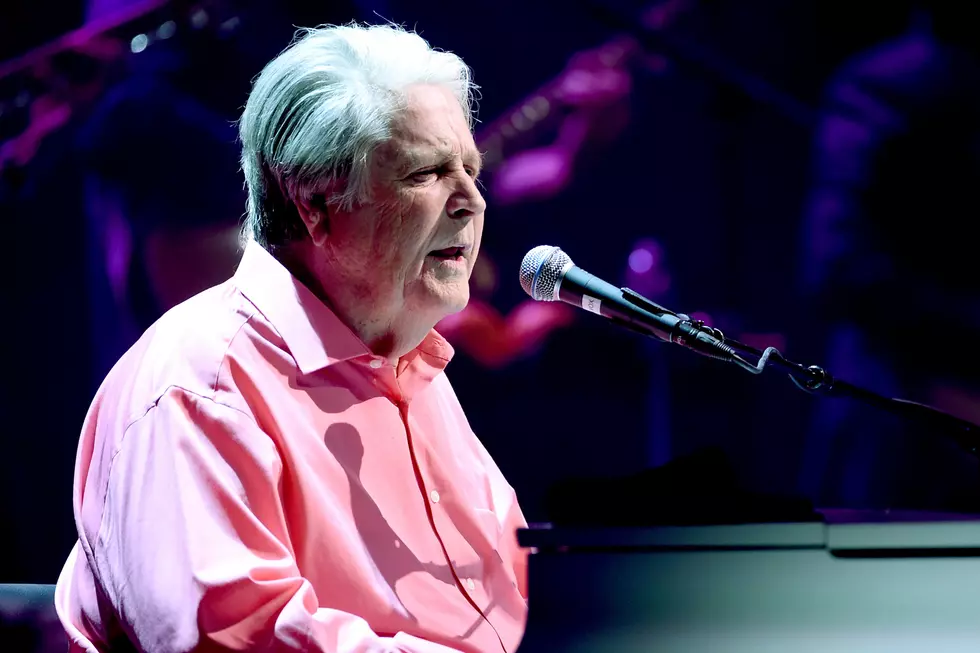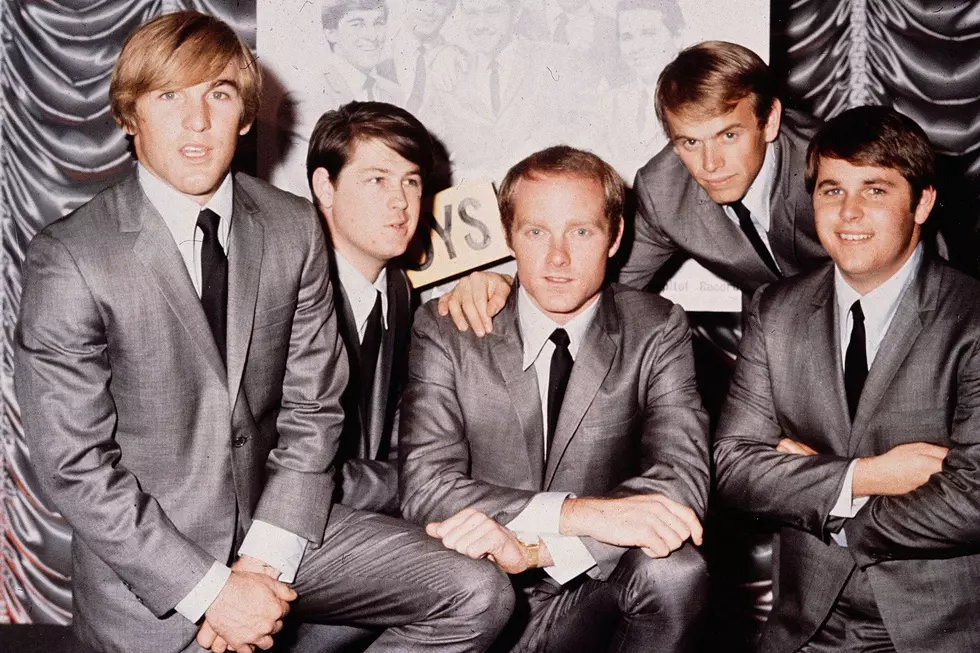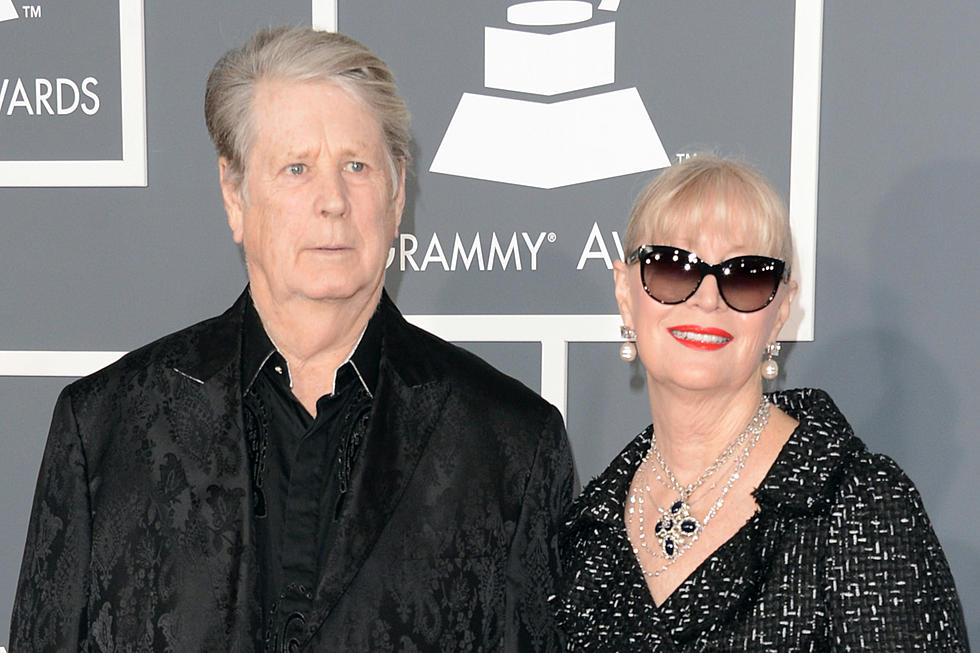Brian Wilson’s Brilliance and Pain Explored in ‘Love & Mercy': Movie Review
If you’re a Brian Wilson fan, it’s tough to be objective about Bill Pohlad’s Love & Mercy, a biopic that reverently jockeys between the Beach Boys mastermind’s unraveling and redemption, but shows little in between.
Deftly alternating between the mid-'60s and mid-'80s, with brilliant portrayals by Paul Dano and John Cusack as Wilson, the duality allows each actor to play to his strengths: Dano masters a youthful exuberance and silent pain; Cusack shows the reserve, mannerisms and whisper of longtime suffering.
"I think the conceit of it is that there’s no one definitive portrait of anybody," Cusack said in a Q&A session following a screening at Chicago’s Music Box Theatre, where he was joined by Brian Wilson. "You don’t try to do the whole story. This is just part of his whole life, but it captures the spirit."
The messiest, bedridden years of drug abuse and weight gain are left to the imagination, good news to fans who will instead happily celebrate both on-screen depictions of the beloved legend. It was Brian Wilson himself who brought the topic to the forefront, in fact, when asked what advice he’d give his younger self or young artists today. "It would be a smart move not to take heavy drugs," Wilson said.
But first Dano gives us the young genius, whose mental illness closes in at his creative apex. As his anxiety grows, he insists on working in the studio instead of touring with the Beach Boys. "I can take us further" at home, he pleads, suggesting his new ideas can help the band best their perceived competition, the Beatles.
Calling him the "Mozart of rock n' roll," Cusack noted the difference between the two groups. "With the Beatles there was George Martin and these two songwriters named [John] Lennon and [Paul] McCartney, and they had George Harrison. And on the other side of the Atlantic, there was this one guy, with one ear, who was doing the writing, the music, the arranging – everything," referencing Brian Wilson’s hearing loss, a result of his father’s abuse.
Fans see that one-man show in the film, glimpsing Wilson’s creative process and watching songs like "God Only Knows" and "Good Vibrations" come to life. Dano performs them on piano and vocals as they're being written, but scenes of the classics being recorded use the tapes from the Beach Boys' original sessions.
Many of those scenes were, in fact, filmed in the same studios where the music was originally recorded, Wilson noted. But his experimentation with new lyrical ideas and sounds, played primarily by the Wrecking Crew and not the Beach Boys, drives a deeper wedge between him and his cousin Mike Love (Jake Abel) and his disapproving father Murry (Bill Camp) – both of whom want Wilson to continue writing the sun-and-surf songs that brought earlier success. "Even the happy songs are sad!" Love complains.
Young Brian Wilson goes to great lengths to get the music out of his head and onto the record. When the pianist hits a bad note, Wilson encouragingly tells him it’s no longer a mistake if repeated every fourth bar. He records barking dogs, and wonders aloud whether a horse would fit in the studio. He even dives headfirst under the piano hood, feet in the air, plucking strings with bobby pins to achieve the perfect sound.
Famed drummer Hal Blaine (Johnny Sneed) reassures Wilson that his innovations and instincts impress even the classically trained musicians who have worked with the biggest names in the industry. "Phil Spector’s got nothin’ on you," he tells Wilson. (Some of these tales are also told in the recently released documentary The Wrecking Crew by Wilson, Blaine and bass player Carol Kaye – who's portrayed in Love & Mercy by Teresa Cowles.)
The peer and critical praise, however, is not enough to counter other staggering personal defeats: Love proclaiming the Beach Boys' Pet Sounds, which has since been regarded as one of the greatest albums in history, a flop; or his father – already fired as the band’s manager – selling the Beach Boys’ publishing rights in an attempt to even the score. The sounds in Brian Wilson’s head become too much, and he cracks while writing tracks for what, decades later, would become Smile.
These scenes of young Wilson are intercut with Cusack’s empathetic look at the broken, middle-aged musician, already under the spell of Dr. Eugene Landy (a wicked Paul Giamatti), and struggling to regain control of his life. Landy uses Wilson’s increasingly fragile state and fractured relationships to manipulate and overmedicate him, exerting total authority as his legal guardian. The full extent of Landy's practices comes into view during Brian Wilson's courtship with his future wife, Melinda Ledbetter (Elizabeth Banks), who tries to free Wilson from his doctor's grasp.
Cusack's sensitive portrayal followed hours spent both with the Wilsons and with Smile, which the actor said he listened to nightly before bed.
"I felt a little bad because I didn’t want to be the guest who wouldn’t leave, but if Brian and Melinda were going to invite me into their homes, I just wanted to soak up as much as I could from them," Cusack said. "I hope you liked the movie, but if you didn’t like what I did or anything else, you can go listen to the Pet Sounds sessions or Smile sessions and Brian’s body of work and you can hear an explosion of creativity that comes along once every hundred years."
Love and Mercy opens June 5.
Review by Debra Filcman
See the Beach Boys and Other Rockers in the Top 100 Albums of the '60s
Check out These 25 Interesting Rock Movie Facts
More From Ultimate Classic Rock









